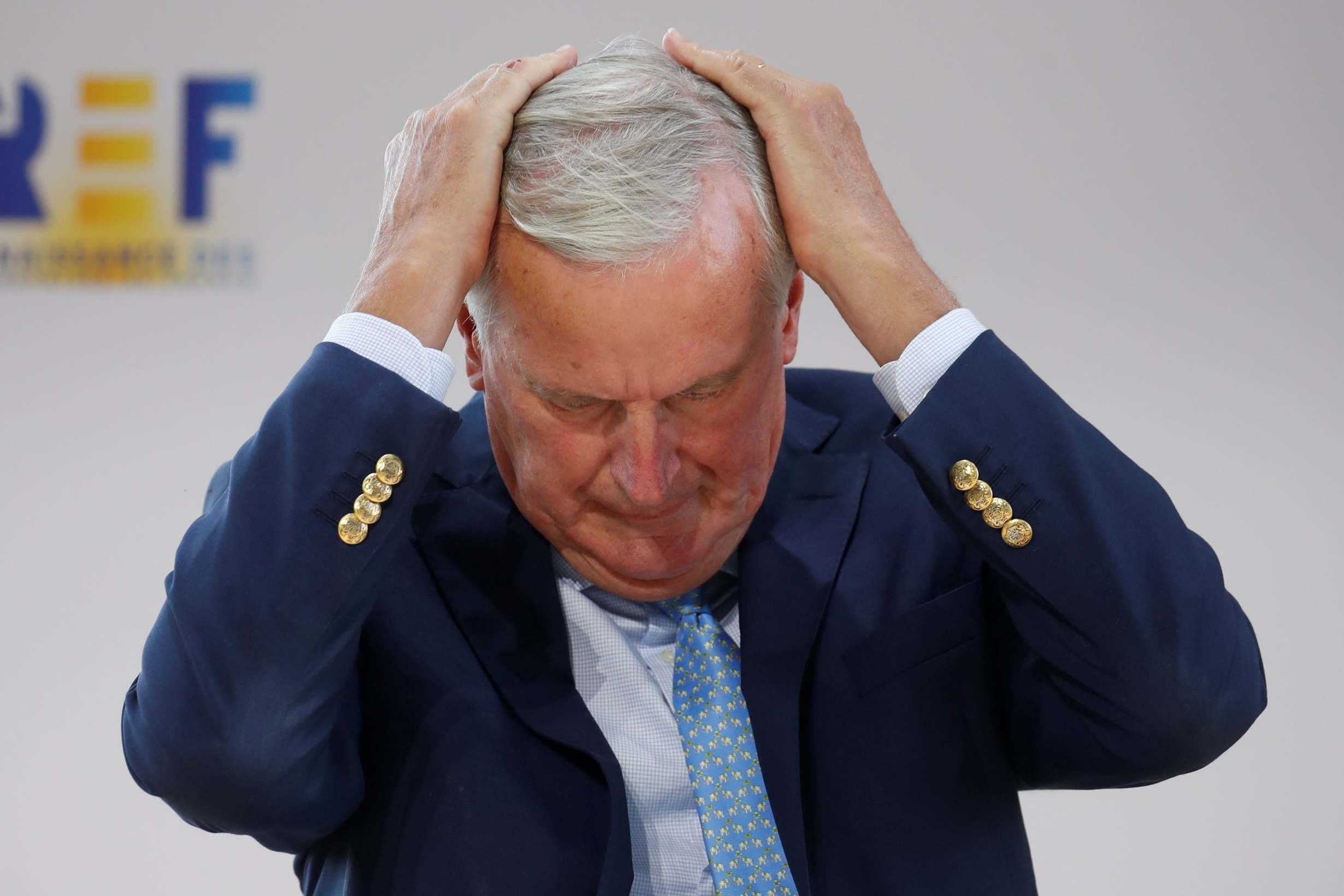Can a no-deal Brexit still be avoided – or is it too late?
Europe’s exasperated groans about the stalling Brexit progress are growing louder, writes Sean O'Grady. Should we accept there isn’t enough time left to thrash out a deal?


It is a worrying (at least for some) index of how badly the UK-EU trade talks are going that the German government has dropped the item from the next meeting of the EU’s college of ambassadors. There is simply nothing to report back on, and nothing for the 27 diplomats to confer with their respective governments about. As the current holders of the EU’s rotating presidency, the German government is entitled to propose such a move; there appears to have been no objection among the rest of the EU’s member states.
By now, according to the more rosy predictions made in the 2016 referendum campaign, the Europeans and the British would have moved past the transition period and already been trading freely, and on a scale and manner not so very different to when the UK was a full member of the customs union and single market – minus the obligations around free movement of labour and the EU budget. Even ardent Remainers assumed that “leaving” the EU would probably entail continuing engagement with the customs union and/or the single market, in whole or in part.
This is why non-EU states such as, variously, Norway, Switzerland, Turkey and Ukraine who had trade and economic arrangements with the EU were often cited as possible models. So were the EU free trade deals being negotiated with the likes of Canada and Japan. Brexiteers also say that the EU chief negotiator Michel Barnier suggested a “bare bones” free trade deal (no tariffs or quotas) as one of the “sliding scale” of options, shown as steps on a slide at a presentation during the early phase of Brexit. The (non binding) UK-EU Political Declaration, agreed and published alongside the (binding) UK-EU Withdrawal Treaty last October also envisages a broad economic and political partnership of some sort.
Whatever was once envisaged, it seems that neither side thinks much of an agreement will be ready by October, in time for it to be ratified by the UK parliament, the European parliament and about 30 other regional and national assemblies across the continent. Some can be troublesome, as when the Walloons rejected the Canada deal. So time is certainly running out.
Some, such as former Brexit secretary David Davis, believe that a deal will appear after all-night talks at the last moment, but there is no guarantee of it. Perhaps some minor emergency arrangements around travel and visa-free movement of citizens could be concocted in time; but the overarching issues about import taxes, migration, fishing, the “level playing field”, market access, police and security cooperation (eg on refugees) and much else will simply not exist by 1 January 2021. The signs are that neither side is completely prepared for trading on World Trade Organisation terms.
The blame game is already under way, and, whatever the merits of the arguments about that, the failure of these talks will poison relations for years to come. Brexiteers say that the EU refuses to acknowledge the UK as an independent sovereign state and is denying it the kind of free trade deal offered to, say, Canada. The EU counters that Britain’s proximity makes it a different case and a more problematic neighbour if it chooses to reduce environmental or labour protections, and other such moves. For the British, building a more competitive economy outside EU rules is the whole point of Brexit.
It is the oldest of themes: ever since the European Community was founded in 1957 the British have wanted a free trade arrangement only, either as members of a reformed EC/EU, or as associates or non-members; and it has always been denied, principally by the French. Picking and choosing, having your cake and eating, it has never been a realistic option; with the economic benefits come the financial and political obligations. Every prime minister from Harold Macmillan to Boris Johnson has had to learn this simple Eurofact of life.
In the end, it takes two to tango, or not, and neither the EU nor the UK is obligated to offer the other side anything beyond minimal WTO rules. It is a matter of tough negotiation, where the balance of economic power will eventually favour one side more than the other. Given that the EU economy is roughly five times larger than Britain’s, and Britain exports proportionately more to the EU than the EU exports to Britain it suggests the power lies with Brussels. But neither side would actually “win”.
Under a no-deal/clean/Australian-style/WTO Brexit, both sides would lose markets and jobs, at least in the short to medium term. Were it not for Covid and Brexit fatigue everyone would be talking about the crisis in the trade talks; now or seems even Europe’s diplomats cannot be bothered with discussing Brexit.
Join our commenting forum
Join thought-provoking conversations, follow other Independent readers and see their replies
Comments
Bookmark popover
Removed from bookmarks